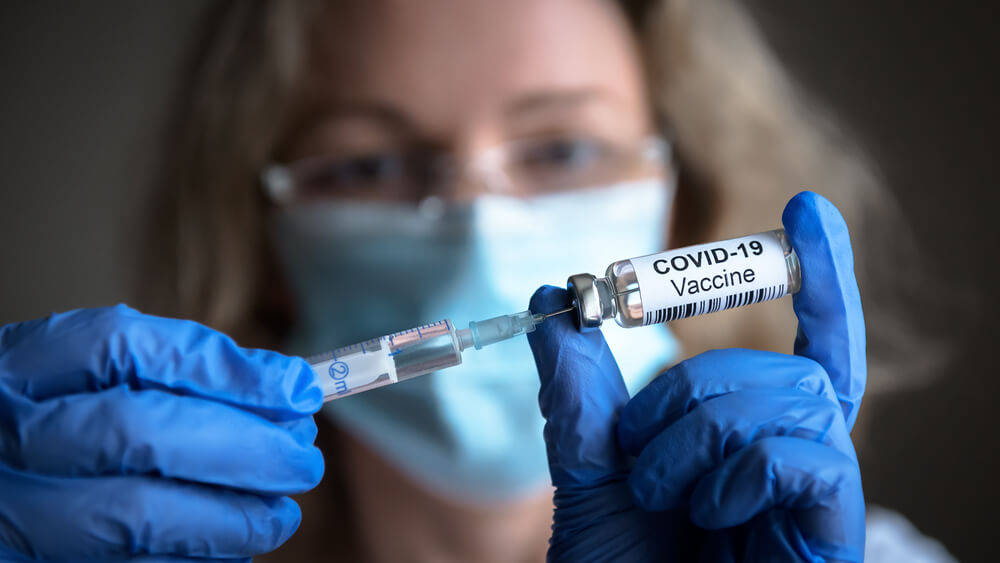In the United States, the third vaccination against COVID-19 will be injected: who needs it
US regulators on Thursday said transplant recipients and others with severely weakened immune systems could receive an additional dose of Pfizer or Moderna vaccines to better protect them as cases of the delta strain continue to rise. Writes about it Yahoo!

Photo: Shutterstock
The FDA announcement affects several million Americans who are particularly vulnerable to organ transplants, certain cancers, or other diseases. Several countries, including France and Israel, have introduced similar recommendations.
Vaccines have a harder time boosting immune systems suppressed by certain drugs and diseases, so these patients don't always get the same protection as otherwise healthy people—and small studies suggest, at least for some, an extra dose may be the answer.
“Today's action allows physicians to boost immunity in some immunocompromised people who need additional protection from COVID-19,” said Acting FDA Commissioner Dr. Janet Woodcock.
On the subject: Kidney inflammation and rash: new side effects found in COVID-19 vaccines
The FDA has determined that people with transplants and others with similar immunocompromising levels can receive a third dose of vaccines from Pfizer and Moderna at least 28 days after the second vaccine. But nothing is said about immunocompromised patients who received a single dose of Johnson & Johnson's vaccine.
The announcement comes as the highly contagious delta version of the coronavirus has hit much of the country, pushing new cases, hospitalizations and deaths to heights not seen since last winter.
It is important to note that the FDA's decision only applies to this high-risk group, which is estimated to be no more than 3% of the US adult population. This is not a reason for additional doses for the general population.
Health authorities are considering the additional dose as part of an individualized plan for immunocompromised individuals. For example, France has recommended since April that such patients receive a third dose four weeks after their usual second vaccination. Israel and Germany have recently begun recommending a third dose of a two-dose vaccine.
You may be interested in: top New York news, stories of our immigrants and helpful tips about life in the Big Apple - read it all on ForumDaily New York
In addition, U.S. health officials continue to monitor closely when a person's immunity has weakened enough for everyone to need additional vaccinations. But for now, vaccines continue to provide reliable protection for the general population.
The Centers for Disease Control and Prevention (CDC) may officially recommend additional vaccinations for specific immunocompromised groups following an external advisor meeting on Friday, Aug.13.
People with transplants, as well as those with suppressed immune systems, know they are at greater risk than the average American, and some are pushing for extra doses themselves. The change means it will now be easier for high-risk groups to get another shot, but experts warn that it is not yet clear who should expect a third shot.
“This is all going to be very personalized,” warned Dr. Dorry Segev, a transplant surgeon at Johns Hopkins University who is leading a major National Institutes of Health study on supplemental vaccinations for organ recipients. “The third dose increases the immune response in some people, but not in everyone.” We don’t quite know yet who this will help.”
On the subject: How long does immunity last after vaccination against COVID-19: data on different drugs
One recent study involving over 650 transplant recipients found that after two doses of Pfizer or Moderna vaccines, just over half of them have antibodies that fight the virus. And, as a rule, there are fewer antibodies than healthy vaccinated people. Another study of patients with rheumatoid arthritis and similar autoimmune diseases found that only those taking certain medications have a very poor response to the vaccine.
There is little evidence on how well the third dose works and whether it causes any safety concerns, such as an increased risk of organ rejection. Canadian researchers reported that transplant recipients were more likely to have high antibody levels if they received the third dose than those who were given a sham vaccine for comparison. Similar small studies have also shown that some organ recipients respond to the third dose, while others still lack protection.
Read also on ForumDaily:
Kidney inflammation and rash: new side effects found in COVID-19 vaccines
Apps and Websites Essential for Post-View Travel
Reduces the concentration of the virus: a cheap drug for cholesterol cures for COVID-19
New vaccine-resistant variant of coronavirus discovered in the United States
How long does immunity last after vaccination against COVID-19: data on different drugs
Covid discoveries: what we know now about the coronavirus that we did not know before
Subscribe to ForumDaily on Google NewsDo you want more important and interesting news about life in the USA and immigration to America? — support us donate! Also subscribe to our page Facebook. Select the “Priority in display” option and read us first. Also, don't forget to subscribe to our РєР ° РЅР ° Р »РІ Telegram and Instagram- there is a lot of interesting things there. And join thousands of readers ForumDaily New York — there you will find a lot of interesting and positive information about life in the metropolis.











